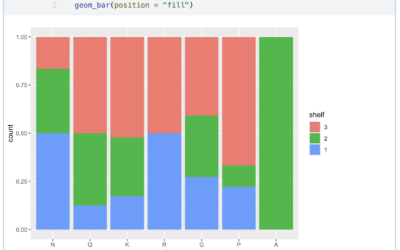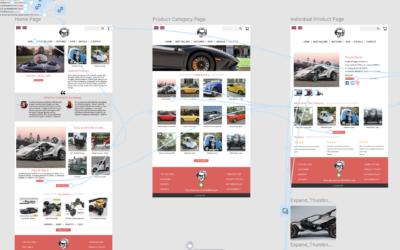In this RStudio project I used ggplot to create complex data visualizations, demonstrating proficiency in coding and data analysis. Through a step-by-step process, I developed visualizations that highlight relationships between multiple variables, effectively communicating insights from the data.
Information Design
Information Design is the practice of organizing, structuring, and presenting information in a way that makes it clear and accessible to users. It involves applying principles and strategies (often informed by theories like Cognitive Load Theory or Gestalt Principles) to ensure that the content is easy to understand and navigate.
Rebuild from Wix to WordPress
I transitioned the website from Wix to WordPress, focusing on improving the overall design. The rebuild included optimizing content for search engines, enhancing user experience, and implementing a cleaner, more intuitive layout. These changes resulted in better search visibility, increased engagement, and a more polished brand presentation.
Full Website Redesign in WordPress
Explore the UX choices in this redesign by interacting with a hotspot image that showcases how information was organized, structured, and made accessible to users. See how Gestalt Principles and Plain Language Theory were applied to help users easily understand the process of filing their taxes for free.
Brand Positioning & Prototyping
This interactive Figma prototype was the culmination of teamwork! A few of my classmates and I were challenged to create a fictitious company, design the brand, design the business model, and finally develop an interactive prototype of what their website could be. Read through the pitch deck, click on the prototype, and follow the whole process as we revealed each step along the way.
Prototype Redesign for an Ecommerce Website
By applying Cognitive Load Theory, I crafted a medium-fidelity prototype of an ecommerce website to reduce mental effort required for users to navigate and process information. The new layout simplifies decision-making by presenting content in a clear, structured manner, minimizing distractions and unnecessary complexity. This allows users to focus on key tasks, such as browsing or purchasing, without feeling overwhelmed.





